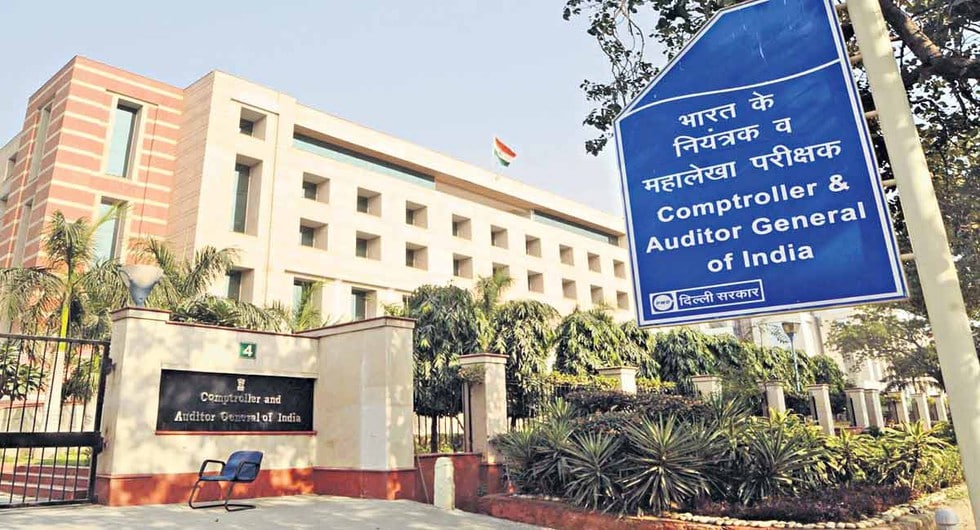About Comptroller and Auditor General of India (CAG):
- The Comptroller and Auditor General of India (CAG), under Article 148 of the Indian Constitution, plays a pivotal role in the financial administration of the country.
- The CAG is the guardian of the public purse, ensuring accountability and transparency in the management of public funds at both the Central and State levels.
- The CAG safeguards the Constitution and parliamentary laws, upholding financial discipline.
- It is a key institution for promoting accountability and ensuring checks and balances in a democratic system.
Constitutional and Legal Provisions for the CAG
- Article 148:
- Appointment: The President appoints the CAG under his/her hand and seal.
- Tenure and Conditions: Determined by Parliament; CAG cannot hold further office under Central or State governments.
- Independence: Salary, allowances, and pensions are charged to the Consolidated Fund of India (CFI), ensuring autonomy.
- Duties and Powers (Article 149): Parliament prescribes the CAG’s powers and functions.
- Form of Accounts (Article 150): Prescribes the manner of keeping accounts for the Union and States on the President’s advice.
- Submission of Reports (Article 151): Reports on Union accounts are submitted to the President and placed before Parliament. Reports on State accounts are submitted to the Governor and placed before the respective State Legislature.
- Certification of Net Proceeds (Article 279): CAG certifies the net proceeds of taxes and duties, which is final and binding.
- CAG’s (Duties, Powers, and Conditions of Service) Act, 1971:
- Tenure: Six years or until the age of 65, whichever is earlier.
- Removal: Follows the procedure for removing a Supreme Court judge.
- Resignation: Addressed to the President.
- Service Conditions: Cannot be varied to the CAG’s disadvantage after appointment.
Q1. What are the 11 constitutional bodies?
The 11 constitutional bodies in India are ECI, UPSC, SPSC, FCI (Finance Commission), GST Council, NCSC, NCST, NCBC, Special Officer for Linguistic Minorities, CAG and AGI.
Q2. How do constitutional bodies differ from statutory bodies?
Constitutional bodies are established by the Constitution and derive their powers from it, while statutory bodies are created by laws passed by Parliament or state legislatures.
Source: TH
Last updated on December, 2025
→ Check out the latest UPSC Syllabus 2026 here.
→ Join Vajiram & Ravi’s Interview Guidance Programme for expert help to crack your final UPSC stage.
→ UPSC Mains Result 2025 is now out.
→ UPSC Notification 2026 is scheduled to be released on January 14, 2026.
→ UPSC Calendar 2026 is released on 15th May, 2025.
→ The UPSC Vacancy 2025 were released 1129, out of which 979 were for UPSC CSE and remaining 150 are for UPSC IFoS.
→ UPSC Prelims 2026 will be conducted on 24th May, 2026 & UPSC Mains 2026 will be conducted on 21st August 2026.
→ The UPSC Selection Process is of 3 stages-Prelims, Mains and Interview.
→ UPSC Result 2024 is released with latest UPSC Marksheet 2024. Check Now!
→ UPSC Prelims Result 2025 is out now for the CSE held on 25 May 2025.
→ UPSC Toppers List 2024 is released now. Shakti Dubey is UPSC AIR 1 2024 Topper.
→ UPSC Prelims Question Paper 2025 and Unofficial Prelims Answer Key 2025 are available now.
→ UPSC Mains Question Paper 2025 is out for Essay, GS 1, 2, 3 & GS 4.
→ UPSC Mains Indian Language Question Paper 2025 is now out.
→ UPSC Mains Optional Question Paper 2025 is now out.
→ Also check Best IAS Coaching in Delhi

















